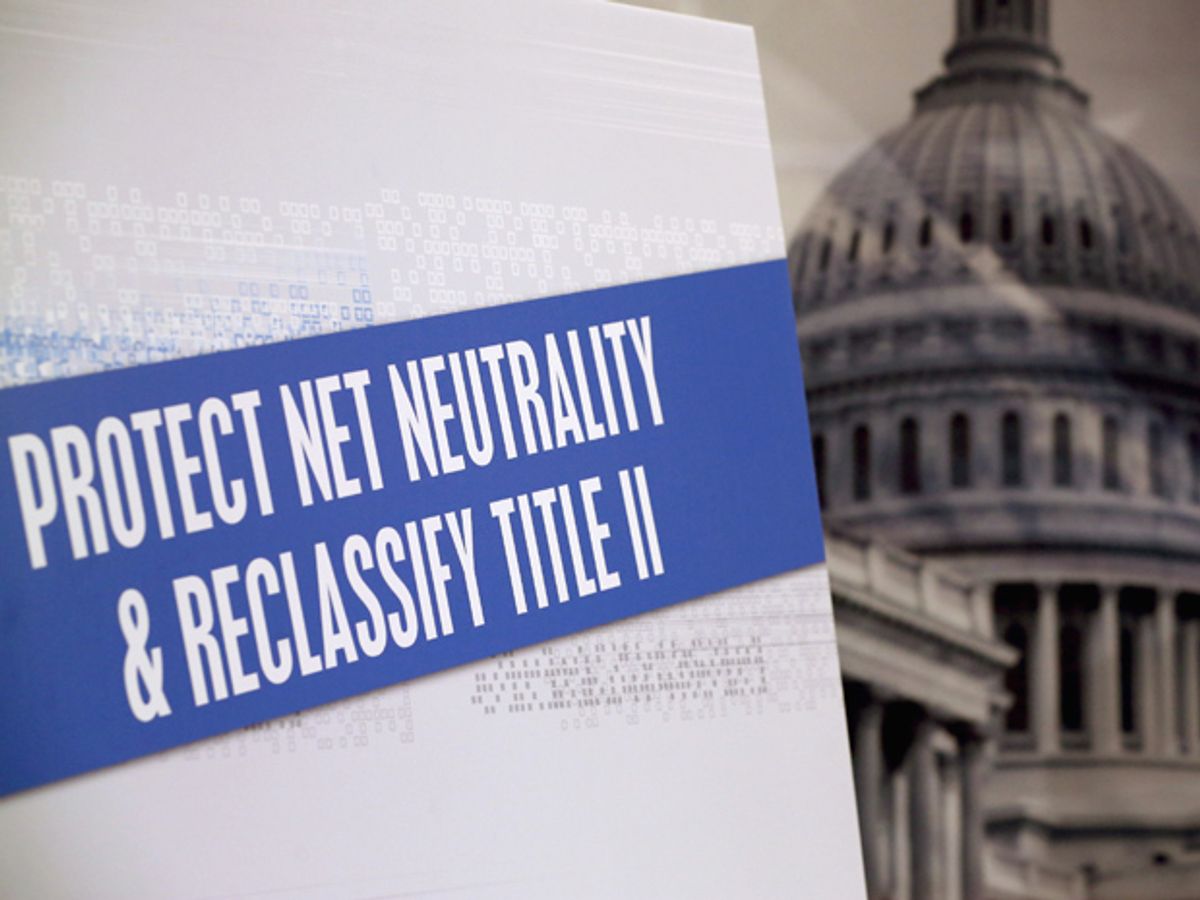As expected, the Federal Communications Commission today approved proposed Net Neutrality rules by a 3 to 2 vote. Two Democrats joined FCC chairman Tom Wheeler in voting for the rules. Two Republicans dissented at great length. The audience at the open meeting greeted the approval with loud applause. The rules apply to both wireless and fixed broadband.
At the heart of the FCC proposal are three "bright line rules" embraced by net neutrality advocates. They bar broadband providers from blocking or throttling legal content and services transmitted over the Internet, and prohibit providers from charging content or service providers such as Netflix a premium for high-speed connections.
Throttling became a hot-button issue after widespread claims that cable companies had deliberately slowed to a crawl streaming video from third-party services such as Netflix. Cable companies denied they deliberately throttled the video traffic, and a study [PDF] by Measurement Lab found the choke points were at interconnections between local broadband services and long-distance traffic routes. But users remained worried that broadband providers could throttle traffic if they wanted to.
Net neutrality advocates also jumped on plans for paid priority services because of worries that they could create a two-tier Internet, with the fast lanes reserved for companies with deep pockets. Cable companies contributed to that concern when they pressed large content providers such as Netflix to pay them to make direct high-speed connections.
The new rules do allow carriers to use "reasonable network management" techniques other than paid prioritization, as needed for various services. Details are not yet available, but this presumably would allow assignment of priority codes to speed transmission of packets carrying time-sensitive data such as for voice telephony and interactive gaming.
An earlier FCC attempt to impose open Internet rules was blocked by the courts on the ground that the agency lacked authority. The new FCC proposal seeks to overcome that limit by classifying broadband Internet service as a "Title II telecommunications service" akin to wireline telephony, which it does have the authority to regulate.
Republican commissioners vehemently objected both to using Title II authority and to giving the FCC authority to regulate the Internet. "The Internet is not broken, there is no problem for the government to solve," said commissioner Ajit Pai. Retorted Wheeler, "The Internet is too important to allow broadband providers to be the ones making the rules."
Jeff Hecht writes about lasers, optics, fiber optics, electronics, and communications. Trained in engineering and a life senior member of IEEE, he enjoys figuring out how laser, optical, and electronic systems work and explaining their applications and challenges. At the moment, he’s exploring the challenges of integrating lidars, cameras, and other sensing systems with artificial intelligence in self-driving cars. He has chronicled the histories of laser weapons and fiber-optic communications and written tutorial books on lasers and fiber optics.



